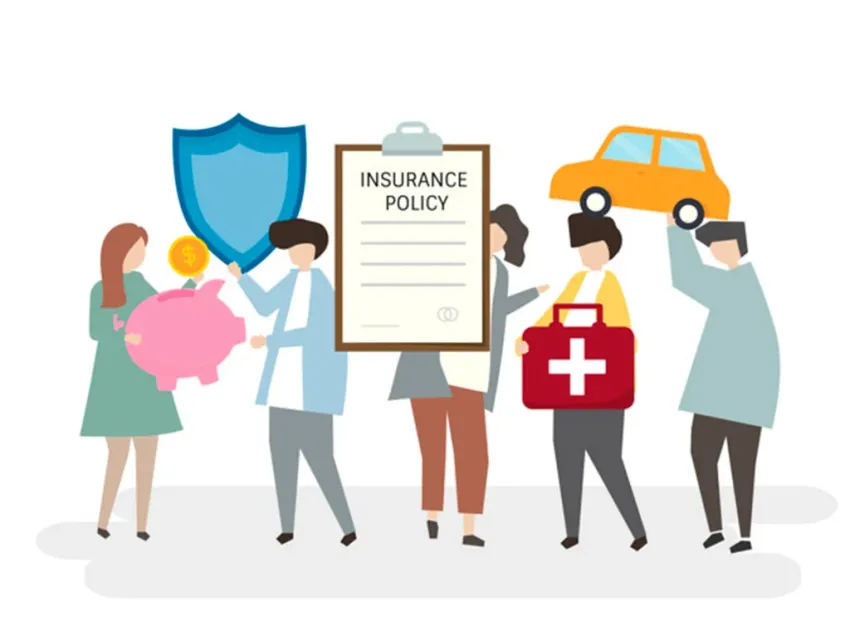Understanding What Happens During a Medical Emergency at Work
In the fast-paced, high-stakes work environment of Dubai, emergencies can happen when you least expect them. Whether it’s a sudden illness, a heart attack, a fainting spell on-site, or an unexpected accident, the moments that follow are critical—not just for the individual’s health but for legal and financial clarity.
If you’re a worker in the UAE, or even an employer trying to do the right thing, one of the biggest questions during such times is: Who covers the emergency medical bills?

What the UAE Labour Law Says About Health Coverage
The UAE Labour Law has evolved over the years to prioritize the welfare and protection of employees. Employers are mandated to provide health insurance to all their employees. This requirement is not just for white-collar workers in offices but includes laborers, domestic workers, and even freelancers working under certain visa arrangements.

However, when it comes to emergencies—especially sudden or life-threatening ones that require ambulance services, ER admissions, surgeries, or intensive care—the question becomes more specific. Who pays the bills if the insurance doesn’t cover everything? Or what happens if the employee hasn’t even received their insurance card yet?

Employer Responsibility Begins with Insurance
Under Dubai law, employers must ensure that every employee is covered by a valid health insurance policy. If an employer fails to do so, they can face heavy fines. This also means that if an employee suffers a medical emergency and there is no insurance in place, the employer is held responsible for the medical expenses incurred.
Even when insurance exists, most standard policies in Dubai include emergency care as part of the basic coverage. This includes ambulance transport, emergency surgeries, and ER admissions. So, technically, if the worker is properly insured, the policy should handle most of the emergency costs.
But things get tricky when claims are denied, or when the emergency requires extended care that goes beyond the limits of the plan. That’s when disputes arise—and employers may be expected to step in and cover the gap.
Real-Life Scenarios That Highlight the Dilemma
Imagine a construction worker collapsing due to heatstroke in the middle of a summer shift. He’s rushed to a hospital, kept under observation, and later discharged with several follow-up appointments and medication. His insurance covers the hospital bill, but not the follow-up care. In such a case, who picks up the remaining cost?
Or take the example of an employee who suffers a heart attack during a business meeting and is admitted to an ICU. The insurance provider covers 80% of the total bill. The remaining 20% still runs into thousands of dirhams. If the employee can’t afford it, is it the employer’s duty to pay?
There’s no one-size-fits-all answer. But courts in the UAE have leaned in favor of protecting the worker, especially when the medical emergency happens during working hours or within the professional scope of employment.

What Employees Need to Know About Their Rights
For anyone employed in Dubai, knowing your rights can be empowering. Every employee has the right to health insurance. If your employer hasn’t provided you with one, that’s not just a moral failing—it’s a legal violation.
In case of an emergency, you should immediately contact your HR department and inform them of the incident. Most reputable companies have emergency protocols in place and will help coordinate hospital logistics and insurance approvals.
It’s also smart to keep a personal record of your insurance details, including policy number, emergency hotline, and network hospitals. In an emergency, you or someone with you can act quickly and reduce delays in treatment.
The Employer’s Perspective: More Than Just a Legal Obligation
For business owners and HR managers in Dubai, this isn’t just about ticking legal boxes—it’s about leadership and ethics. Supporting an employee during a medical emergency can build a culture of trust and loyalty.
Yes, providing insurance is a financial commitment. But the long-term return on investment—retaining staff, avoiding legal complications, and nurturing a positive work environment—far outweighs the cost.
Additionally, having a clearly outlined emergency response policy is no longer optional. Companies that fail to handle emergencies correctly risk damaging their reputations, facing fines, and even legal action.

Cases Where Employers Must Pay, Even Beyond Insurance
There are situations where the employer might be held liable for 100% of the medical costs—even if insurance is in place. These include:
- When the emergency is caused due to workplace conditions, such as lack of safety gear, heat exposure, or physical hazards.
- When the employer failed to activate the employee’s insurance on time.
- When the worker is still on probation but already performing duties.
- If the employee’s visa is not officially under the company but the person works informally under their management.
In all these cases, UAE courts generally prioritize worker protection and can order the employer to bear the full cost of treatment.
Medical Emergencies Outside of Work Hours: What Happens Then?
One grey area involves medical emergencies that occur outside of working hours or when the employee is off-duty. Suppose an employee has a car accident on a weekend, or faints at home due to dehydration. Does the employer have any responsibility?
The answer mostly depends on the health insurance plan. If the plan includes 24/7 emergency coverage—as most do—then it’s the insurer who handles the payment, not the employer directly. But if the employer failed to provide a valid plan, they could still be held accountable for neglecting their legal duty.
When Disputes Arise, Here’s What You Can Do
In cases where the employer refuses to pay or disputes arise over responsibility, the employee has the right to file a complaint with the Ministry of Human Resources and Emiratisation (MOHRE). Legal aid services are also available, especially for low-income workers.
Having documentation—like medical bills, insurance policy details, HR communications, and proof of employment—can make a significant difference when resolving disputes.

The Bigger Picture: A Safer and More Caring Workforce
Dubai has made significant strides in improving employee welfare and ensuring safer workplaces. Medical emergencies are unpredictable, but the support systems surrounding them shouldn’t be. Whether you’re an employer, employee, or policymaker, the goal should always be to create a working environment where health isn’t just a benefit, but a basic right.
While the law offers guidance, the real strength of any workplace lies in empathy, readiness, and human responsibility. Because at the end of the day, in times of crisis, it’s not just about who pays—it’s about who shows up.
Do follow UAE Stories on Instagram















